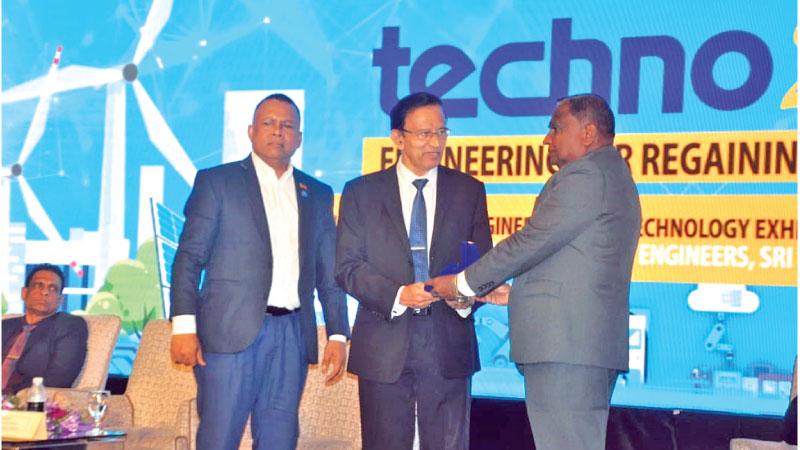
Though billions of rupees are spent on free education and health, the desired results seem to be still out of reach of Sri Lanka, said Eng (Prof) Ranjith Dissanayake at the launch Techno 2023 of the Institution of Engineers Sri Lanka (IESL).
He said that the health sector is creating issues while in the education sector too the expected results from a point of view of the business community is not being realised. “We need an education system that creates entrepreneurs or youth who meet the job demands of the current work environment,” President Elect IESL Dissanayake said.
He said that the Sri Lankans also adopted some somewhat relaxed lifestyle heavily depending on imports to fulfill their requirements. “But the time has now come to produce and use more ‘Made in Sri Lanka’ items,” he said.
The annual flagship event, “Techno 2023” with the timely “Engineering for Regaining the Economy” will be held on October 20, 21 and 22 at the BMICH.
“Since its debut in 1985 “Techno” has demonstrated the methods for improving people’s living conditions and has become a great arena for industry professionals, business heads, technologists, and the general public to join together on a single platform.
Sri Lanka has had economic issues in recent years as a result of a variety of causes such as excessive debt levels, natural calamities, and so on. The country’s economy has been struggling as a result of these circumstances, with high levels of unemployment, inflation, and a widening trade deficit.
In this setting, engineering can play a crucial role in reviving Sri Lanka’s economy. Engineering solutions can assist in addressing most of the pressing issues confronting Sri Lanka’s economy.
Infrastructure developments, for example, improving transportation, energy generation, and telecommunications, facilitating trade and commerce as well as attracting foreign investment and creating job opportunities can be assisted by the engineering inputs.
Renewable energy has the potential to reduce reliance on fossil fuels, save money, and protect the environment. Agriculture automation can boost production, lower labour costs, and improve crop quality, boosting exports and meeting domestic demand. Entrepreneurship promotion can spur new business endeavours, create jobs, and enhance economic growth.
Chief Guest Chairman, Export Development Board, said that the IESL should come up with a scheme where Sri Lanka would be able to export engineering services as well as trained youth similar to what the ICT sector is doing.
“Engineering solutions have the potential to play a valuable role in reviving Sri Lanka’s economy. These solutions will necessitate expenditures, careful planning, and implementation.
“To achieve this a novel education system should be proposed by the IESL to the authorities.”
